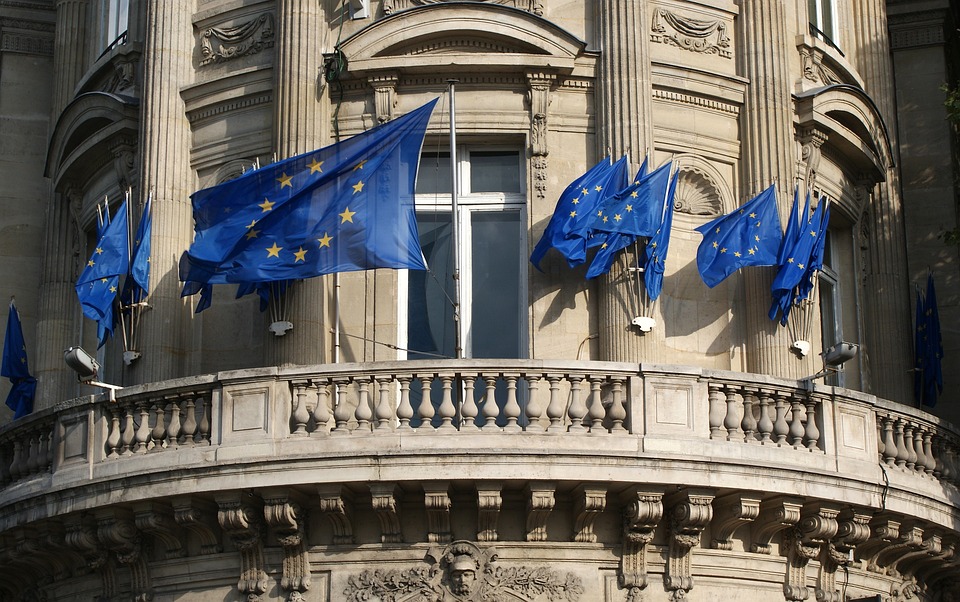The European Union is considering a proposal that would ban substances, also referred to as “forever chemicals” that are used in thousands of products. The potential ban would mark the bloc’s most extensive regulation of the chemical industry.
The EU is considering the proposal that would ban potentially harmful substances referred to as PFAS or “forever chemicals.” The substances are widely used in thousands of products such as textiles, cars, medical supplies, windmills, and non-stick pans due to their long-term resistance to extreme temperatures and corrosion. PFAS is also linked to health risks such as cancer, hormonal imbalance, and a weakened immune system as well as damage to the environment.
The five countries that collaborated on the legislation, Germany, the Netherlands, Denmark, Sweden, and non-EU member Norway issued a joint statement on Tuesday saying that if the resolution passed, it would be “one of the largest bans on chemical substances ever in Europe.”
“A ban on PFAS would reduce quantities of PFAS in the environment over the long term. It would also make products and processes safer for humans,” said the statement. “In many cases, no such alternatives currently exist, and in some, they possibly never will.”
The five countries have since urged companies to develop alternatives.
The Norwegian Environment Agency’s Audun Heggelund said during a media briefing in Brussels that such substances are now detectable all over the world.
On Thursday, Chinese video-sharing platform TikTok pledged to take more action to tackle disinformation on its platform by adding more safety features and expanding its fact-checking measures, fueled by state-controlled media and the ongoing war in Ukraine. The platform presented its progress report on its efforts to bolster the EU code of practice on disinformation in the past six months. TikTok acknowledged that more work needs to be done.
“While we’re proud to be providing this level of granular detail for the first time, we recognize that there is more work to be done. In the coming months, we’re investing in a number of initiatives,” said TikTok’s director of public policy and government relations, Caroline Greer, in a blog post.
Greer said TikTok would be expanding its state-controlled media labels and ramping up action against disinformation related to the war in Ukraine, expanding the fact-checking program across Europe to include more language coverage, and increasing the volume of claims it has fact-checked.



 Antonio José Seguro Poised for Landslide Win in Portugal Presidential Runoff
Antonio José Seguro Poised for Landslide Win in Portugal Presidential Runoff  Federal Judge Restores Funding for Gateway Rail Tunnel Project
Federal Judge Restores Funding for Gateway Rail Tunnel Project  Japan Election 2026: Sanae Takaichi Poised for Landslide Win Despite Record Snowfall
Japan Election 2026: Sanae Takaichi Poised for Landslide Win Despite Record Snowfall  China Warns US Arms Sales to Taiwan Could Disrupt Trump’s Planned Visit
China Warns US Arms Sales to Taiwan Could Disrupt Trump’s Planned Visit  US Pushes Ukraine-Russia Peace Talks Before Summer Amid Escalating Attacks
US Pushes Ukraine-Russia Peace Talks Before Summer Amid Escalating Attacks  New York Legalizes Medical Aid in Dying for Terminally Ill Patients
New York Legalizes Medical Aid in Dying for Terminally Ill Patients  Trump Allows Commercial Fishing in Protected New England Waters
Trump Allows Commercial Fishing in Protected New England Waters  Trump Congratulates Japan’s First Female Prime Minister Sanae Takaichi After Historic Election Victory
Trump Congratulates Japan’s First Female Prime Minister Sanae Takaichi After Historic Election Victory  Ghislaine Maxwell to Invoke Fifth Amendment at House Oversight Committee Deposition
Ghislaine Maxwell to Invoke Fifth Amendment at House Oversight Committee Deposition  China Overturns Death Sentence of Canadian Robert Schellenberg, Signaling Thaw in Canada-China Relations
China Overturns Death Sentence of Canadian Robert Schellenberg, Signaling Thaw in Canada-China Relations  Trump Says “Very Good Talks” Underway on Russia-Ukraine War as Peace Efforts Continue
Trump Says “Very Good Talks” Underway on Russia-Ukraine War as Peace Efforts Continue  Trump Administration Appeals Court Order to Release Hudson Tunnel Project Funding
Trump Administration Appeals Court Order to Release Hudson Tunnel Project Funding  Bosnian Serb Presidential Rerun Confirms Victory for Dodik Ally Amid Allegations of Irregularities
Bosnian Serb Presidential Rerun Confirms Victory for Dodik Ally Amid Allegations of Irregularities  Sydney Braces for Pro-Palestine Protests During Israeli President Isaac Herzog’s Visit
Sydney Braces for Pro-Palestine Protests During Israeli President Isaac Herzog’s Visit  Israel Approves West Bank Measures Expanding Settler Land Access
Israel Approves West Bank Measures Expanding Settler Land Access  Trump Backs Nexstar–Tegna Merger Amid Shifting U.S. Media Landscape
Trump Backs Nexstar–Tegna Merger Amid Shifting U.S. Media Landscape 































